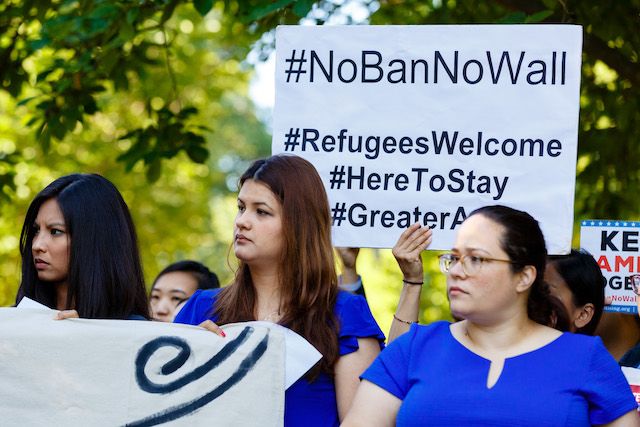September 19, 2018 IN: Immigration, Press Room
Statement: Trump Administration Refugee Cap Threatens America’s Humanitarian Legacy

SEARAC is deeply disappointed with the recent White House announcement lowering the country’s refugee admissions cap for next year to 30,000—a record low number and a significant cut from the 45,000 cap that was set for this year. In comparison, the previous administration admitted 69,000 refugees in 2015 and almost 85,000 in 2016. The Trump Administration continues to push its anti-immigrant and anti-refugee policies, this time pitting communities fleeing violence and persecution against one another.
Now numbering almost 2.7 million nationwide,1 Southeast Asian Americans (SEAA) from Laos, Cambodia, and Vietnam are the largest refugee community to ever be resettled in America’s history. More than 1.1 million SEAA refugees made this country their home2 after decades of the US-backed war in Vietnam, the Secret War in Laos, and the bombings of Cambodia, followed by the ruthless Khmer Rouge-orchestrated genocide. Millions of families lost their homes and their loved ones. An entire generation continues to deal with the trauma of war even decades after.
“It has been more than 40 years since the United States opened its doors to vulnerable families seeking safe haven within our borders,” said Quyen Dinh, executive director at SEARAC. “It is shameful to see that the same country that extended support to my parents fleeing extreme terror in Vietnam all those years ago, is the same country that is now denying this opportunity to other refugee communities in need. This Administration is undermining America’s humanitarian legacy by dismissing the worst global displacement and refugee crisis since World War II, and we will not stand for it.”
REFERENCES
- American Community Survey (ACS) – U.S. Census Bureau, 2013 3-year estimates
- Office of Refugee Resettlement. 1982-2001. Annual Reports to Congress (Fiscal Years 1981-2000). Washington, DC: Office of Refugee Resettlement, Administration for Children and Families, U.S. Department of Health and Human Services





